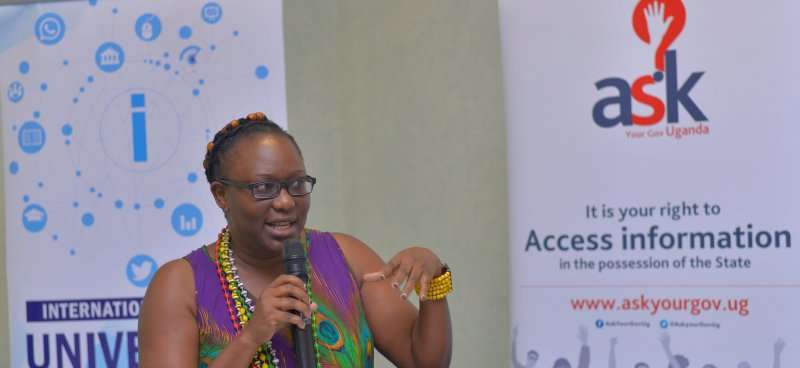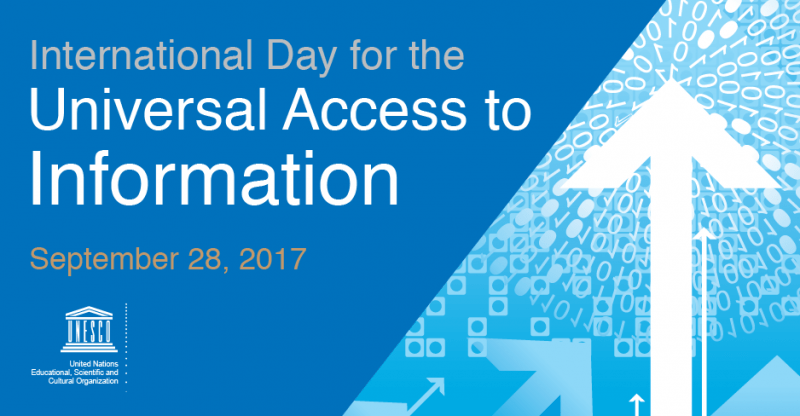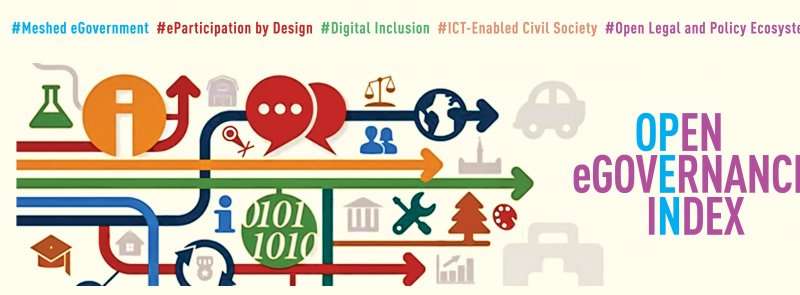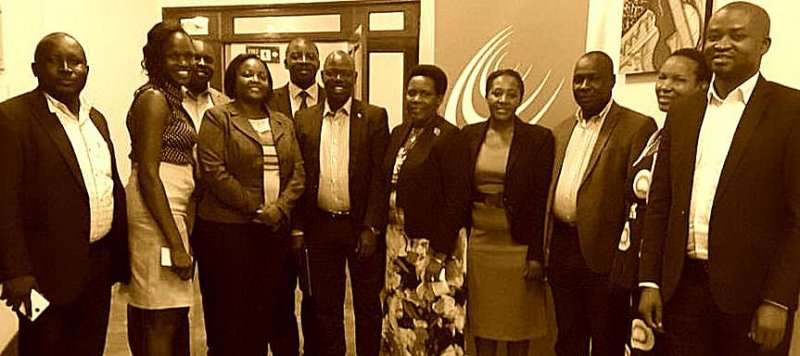By Loyce Kyogabirwe |
Norah Owaraga, a Ugandan researcher, recently narrated her experience on accessing government-held information in the country. She recounted a trip to Tororo district in eastern Uganda where she sought information on Tuberculosis prevalence in prisons. “I was told to go back to the prisons headquarters in Kampala (the capital) to get authorisation yet I had already received clearance from Uganda National Council for Science and Technology (UNCST) and the President’s Office to access government information. Why did I have to travel back to Kampala when I had all the clearance?” asked Owaraga.
Her question was directed at Frank Baine, the spokesperson of Uganda Prisons, during a dialogue held in Kampala to commemorate the International Day for Universal Access to Information, which falls on September 28.
In his response, Baine quoted section 4.8.1(i) of the Code of Conduct and Ethics for Uganda Public Service, 2006 and the Official Secrets Act 1964, stating that public officials are custodians of information that comes into their possession during the course of duty. “Without due permission from an authorising officer, such information cannot be communicated,” explained Baine. In Owaraga’s case, he said the authorising officer was not within the UNCST or the President’s office. Rather, it was the head of Uganda Prisons who had the mandate to authorise the release of the information.
Owaraga’s experience mirrors the challenges faced by Ugandan citizens in realising the right to access information. The right of access to information is enshrined in article 41 of the Constitution of the Republic of Uganda, 1995 which provides that, “Every citizen has a right of access to information in the possession of the state or any other organ of the state except where the release of the information is likely to interfere with the security of the state or the right to the privacy of any other person”. Uganda was among the first African countries to enact a right to information law, the Access to Information Act (ATIA), 2005 and later the Access to Information Regulations, 2011.
The ATIA is aimed at promoting transparency and accountability in all organs of the state by providing the public with timely, accessible and accurate information. Baine’s response instead highlights that a culture of secrecy still persists, with limited proactive release of information by public agencies and denial of citizens’ requests for information.
Other challenges that were raised during the dialogue include the high costs of accessing information, lack of knowledge of the provisions of ATIA among citizens and public officials, and the tedious procedures of requesting for information – all of which impact on the level of citizens’ information requests.
Despite the challenges, the government has taken some steps to promote access to public information. Speaking at the dialogue, Moses Watasa, Commissioner of Information Dissemination at the Ministry of ICT and National Guidance, explained that the Ministry is working to sensitise all government ministries, departments and agencies (MDAs) on ATIA as well as strengthening communication departments within MDAs and local governments with the aim of improving information gathering and dissemination.
Furthermore, the ministry has developed a centralised government information web portal (www.gov.go.ug), which functions as a gateway to all other government websites. The portal is reinforced by the ministry’s requirement for all MDAs to have a communications officer, functional website, a presence on social media and email addresses for officials to ensure public accessibility.
Watasa acknowledged that there has been a culture of secrecy among public officials further compounded by internal bureaucracies. He stated that the government was working to review archaic guidelines that restrict responsiveness or proactive disclosure by public officers.
Meanwhile, according to Watasa the government is also due to launch Open Government Sessions aimed at bridging the information gap between citizens and duty bearers. The sessions, which will be hosted monthly, will involve different MDAs interfacing with the public on functions, ongoing activities, budget allocations and expenditure and feedback. It is expected that the sessions will be broadcast live on TV and leverage social media platforms to allow remote participation.
However, it remains unclear when the archaic laws and guidelines will be reviewed and implemented to ease citizens’ access of public information. It is only through improved access to information that there can be increased social accountability and government transparency towards improved service delivery and greater citizen participation in governance and democratic processes.
The dialogue on access to information in Uganda was organised by the Collaboration on International ICT Policy for East and Southern Africa (CIPESA) in partnership with the Ministry of ICT and National Guidance in the context of the ICT4Democracy in East Africa initiative’s objective to engage stakeholders on supportive policies and practices for human rights and democratic governance in East Africa. It brought together 50 participants including public officials, policy makers, civil society, media, and scholars to reflect on the role of information in improving service delivery and accountability in Uganda.
Universal Access to Information in Africa: What Governments Need to Do
By Edrine Wanyama |
The annual celebration of the International Day for Universal Access to Information (IDUAI) on September 28 is aimed at highlighting the importance of access to Information (ATI) as a cornerstone of all other rights. This year’s IDUAI celebrations were held in Mauritius, organised by the United Nations Educational, Scientific and Cultural Organisation (UNESCO) as part of the E-learning Africa summit (E-Summit). The summit is a fora for deliberation on issues of access to learning and vocational training, access to information, equality and quality in education, literacy and governance with prioritisation of sustainable development solutions.
The Collaboration on International ICT Policy for East and Southern Africa (CIPESA) participated at the e-Summit, making contributions on open access to information and the prerequisites for ATI, including highlighting the need for a conducive policy, legislative and regulatory environment to ensure universal access to information in Africa. Among the measures proposed at the meeting were the full recognition of ATI by more African states supported by the implementation of ATI laws and regulations which effectively empower citizens to demand for information.
Discussions at the summit also entailed a call for governments to ease access to information across multiple platforms including online, in print and through traditional media, alongside clear procedures on how information can be accessed in instances when it is not publicly available. Further, there should be efforts to minimise the costs of accessing information as well as making clear provision for timely information request processing, response and complaints handling mechanisms. A key enabler of the realisation of ATI in many countries will be the repealing of draconian and conflicting legislation and putting in place robust personal data protection measures.
Meanwhile, at the Forum on Internet Freedom in Africa hosted by CIPESA in Johannesburg, South Africa, there was emphasis on the need for governments to limit exemptions to accessible information, improve on data storage mechanisms and systems, provide for mandatory disclosure of information and put in place strong and functional penal mechanisms against information officers who deny citizens information.
Access to information (ATI) is a fundamental human right recognised by international human rights instruments, including articles 19 in both the Universal Declaration of Human Right and the International Covenant on Civil and Political Rights. These articles provide for, among others, the right to freedom of opinion and expression including receiving and imparting information and ideas through media. ATI is also recognised in articles 13(1) and 17 of the Declaration on the Rights of the Child; article 15 of the United Nations Declaration on the Rights of Indigenous People; and the United Nations General Assembly Resolution 59 (1).
The summit brought together participants from all the 54 African countries. However, African countries continue to grapple with enacting ATI laws. Out of 54 countries, only 22 have enacted ATI laws. Additionally, these existing laws have been criticised for failing to meet international minimum standards, with limitation to access outweighing access rights.
Despite the overwhelming participation of African countries, the dilemma remains in the low response to ATI legislation. It should be noted that the lack of ATI legislation negatively impacts accountability and transparency by the state, which are tenets grounded on access to information.
Uganda On the Right Path Towards Realising Open eGovernance
By Lilian Nalwoga |
The Uganda government has identified Information and Communication Technology (ICT) as one of the key drivers of socio-economic transformation in the country. This is evidenced in its presence as a priority in national development frameworks such as Vision 2040 and the National Development Plan II (NDP II) which spans from 2015 to 2020.
Extension of the National Broadband Infrastructure (NBI) which to date has connected a total of 133 Government Ministries, Departments and Agencies (MDAs) sites out of which 94 are currently utilising internet delivered over the NBI. Further the NBP II also prioritises the construction of incubation hubs and ICT parks.
These frameworks have recently been measured for the level of governmental openness they enable. Open e-Governance is measured in terms of the ability of the different actors in the internet access eco-system , including governments, business and civil society, to participate in decision-making processes through the use of information and communication technologies.
In March 2017, CIPESA conducted a study into the State of Open eGovernance in Uganda. The study forms part of the Open e-Governance Index (OeGI), an action-research project implemented by the Foundation for Media Alternatives (FMA) `that aims to measure the state of ‘openness’ in the implementation of ‘e-governance’ around the world.
The OeGI index comprises four key dimensions which are measured for different qualities with the highest score being 1 a dimension can score. The study revealed that the dimension Uganda scored highest in was digital inclusion at 1.00 and scored lowest in the dimensions on meshed eGovernment, eParticipation channels and ICT empowered civil society respectively.
Dimension and Country Index Scores
| Dimension | Description | COL | IND | PAK | PHI | UGA | Average |
| Meshed eGovernment | The ability of governments to provide citizen centric online services. | 0.92 | 0.54 | 0.38 | 0.72 | 0.35 | 0.58 |
| eParticipation | new, digital medium for public participation | 0.51 | 0.82 | 0.32 | 0.65 | 0.36 | 0.53 |
| Digital Inclusion | Presence of policies and programs that support the public’s wider use of ICT | 0.83 | 0.50 | 1.00 | 0.33 | 1.00 | 0.73 |
| ICT empowered civil society | ICT readiness and utilisation CSOs and other non-State organisations such as political parties and people’s organisations. | 0.63 | 0.54 | 0.71 | 0.75 | 0.39 | 0.60 |
| Enabling / constraining environment | Extent that the government recognizes and fosters the right to freedom of expression, right over personal communication, cultural freedom and the use of local languages government’s ability to place its public functions online, which comprises many aspects of ICT enablement. | 0.81 | 0.78 | 0.63 | 0.63 | 0.78 | 0.73 |
| Average | 0.74 | 0.64 | 0.61 | 0.62 | 0.58 | 0.64 |
In terms of Meshed eGovernment, Colombia scored the highest at 0.92, followed by the Philippines at 0.72, Indonesia at 0.54, Pakistan at 0.38 and Uganda at 0.35. In the eParticipation channel dimension, Indonesia had the highest score at 0.82, followed by the Philippines at 0.63, Colombia at 0.51, Uganda at 0.36 and Pakistan at 0.32.
Pakistan and Uganda scored 1.00 in the Digital Inclusion dimension, followed by Colombia at 0.83, then Indonesia at 0.50, and the Philippines at 0.33. In the ICT empowered civil society dimension, the Philippines scored the highest at 0.75, followed by Pakistan at 0.71, Colombia at 0.63, Indonesia at 0.54 and Uganda at 0.39. In the Enabling/Constraining Environment dimension, Colombia scored the highest at 0.81, followed by Indonesia and Uganda both at 0.78, then Pakistan and the Philippines both with a score of 0.63.
Uganda’s highest score in Digital Inclusion reflects the presence of universal access and literacy policies in place, such as the National ICT Policy 2014, Rural Communications Development Fund Policy 2001 and draft broadband strategy although adoption and implementation is still challenge.
Despite, having the lowest average index score of 0.58 out of 1, the study indicates that Uganda is moving towards the right path to implementing eGovernance. This includes a growing number of e- services being offered by public agencies such as e-filling for taxes, presence of enabling laws and policies, some of which are positive for citizen participation, free expression and open governance and a growing use of ICT by both governments and Civil Society Organisations (CSOs).
Nonetheless, slow uptake and uncoordinated implementation of eGovernance across government Ministries, Departments and Agencies (MDAs) is still hampering its full adoption. Thus, more commitment towards adoption of policies especially those focusing on promoting open data, open standards and privacy and data protection is needed.
Full findings of the study can be found here.
Join us at the Forum on Internet Freedom in Africa 2017 (FIFAfrica17): Register Today!
Register and join those who already have set their sights on joining us at #FIFAfrica17 as we continue to advocate for an internet that is free, secure and open. We have received many session proposals and suggestions but are still open to receiving a few more. As you register, you are still welcome to add your suggestion – we’ll try our best to find a way of addressing the topics you raise. Successful session proposals will be listed on the Forum webpage on August 10, 2017.
Travel Support
Last year we received over 400 applications for travel support of which we were able to support less than one-fifth of the applicants. Our vision is to have a Forum with representation from as many countries in Africa as possible. As part of the registration process, we make room for interested participants to submit an application for travel support.
Exhibit at #FIFAfrica17
Participation in the Forum takes various forms. Some want to talk, others want to listen and some want to show what they do. We are expanding exhibition space at the Forum and are thus inviting proposals from individuals,organisations and companies who wish to showcase their work, projects and products at #FIFAfrica17. The exhibition opportunity is free but we encourage a voluntary contribution to enable us ensure that the #FIFAfrica17 experience is as insightful as it is memorable. Please follow this link and let us know your exhibition idea.
#FIFAfrica17 is co-hosted by the Collaboration on International ICT Policy for East and Southern Africa (CIPESA) and the Association for Progressive Communications (APC)
CIPESA Presents Proposals on Access to Information Law to Uganda Parliament’s ICT Committee
By Juliet Nanfuka |
The Collaboration on International ICT Policy for East and Southern Africa (CIPESA) has met members of the ICT Committee of the Parliament of Uganda and presented proposals for more effective implementation of the Access to Information Act of 2005 and for amendments to this law in order to enhance citizens’ access to public sector information.
During the April 7 engagement, it emerged that the access to information law remains largely unknown, misinterpreted and unimplemented, thus fueling the gap in the amount of information held by the state available to citizens. Consequently, civic participation in governance, monitoring of service delivery as well as transparency and accountability in government, is undermined.
In 2005, Uganda enacted the Access to Information (ATI) law which granted citizens the right to access information held by the state. However, in the 12 years that have since elapsed, there are few cases to show utilisation of the law by citizens, and indeed the state.
Article 41 the Uganda constitution, states: “Every citizen has a right of access to information in the possession of the State or any other organ or agency of the State except where the release of the information is likely to prejudice the security or sovereignty of the State or interfere with the right to the privacy of any other person.”
Mary Paula Turyahikayo, chairperson of the ICT Committee, said the committee has worked to ensure that the necessary laws and infrastructure such as the national backbone infrastructure (NBI) project are in place to enable more citizens to access the internet.
Despite these measures, citizens’ access to vital information remains a big challenge, with the access to information law hardly implemented.
Public information should be made available to #public free of charge. The #RightToInformation law in #uganda says otherwise @AskYourGovUg
— CIPESA (@cipesaug) April 7, 2017
The ATI law requires every minister to make an annual report to parliament on the number information requests they received, indicating granted or rejected requests and reasons for rejection. However, no ministry has ever presented such a report. Moreover, at a workshop held last March for government information officers, it emerged that many of them are not aware of this obligation.
Silas Aogon, the Member of Parliament for Kumi Municipality, noted, “We have never seen any report to parliament on how the MDAs [Ministries, Departments and Agencies] are giving information to those who want to access it. I had never thought about asking for it until now.”
Ultimately, for the right to access information to be realised in Uganda, including meaningful implementation of the law, parliament needs to play an active oversight role. Indeed, while some MPs may not be conversant with the ATI law, they recognise the importance of citizens’ access to information for good governance. This was echoed by Abigaba Cuthbert, MP of Kibale County in Kamwenge district, who stated, “With increasing corruption, access to information is critical. We cannot talk about transparency without access to information.”
MPs in the #ICT Committee have been convened by @cipesaug to discuss #RightToInformation in #Uganda & #ICT4D @FrankTumwebazek @MoICT_Ug https://t.co/7faatVoLFr
— #AskYourGovUg (@AskYourGovUg) April 7, 2017
Accordingly, the CIPESA position paper on the State of Access to Information in Uganda makes several recommendations, the first being that parliament should use its oversight role and compel all public bodies to comply with section 43 of the Act which requires every minister to submit an annual report to parliament on requests for records or access to information made to a public body under his or her ministry. This will ensure that each ministry and the different agencies under it submit annual reports on the status of access to information.
Below are some of the other recommendations:
- Government ministries, departments and agencies should develop manuals containing descriptions, addresses, nature of work and services, how to access information and persons to consult as stipulated in section 7 (1), (2) and (3) of the Access to Information Act.
- Government should fast-track and operationalise the Digital Repository Centre for proper storage and accessibility of government records. This will serve to ensure the digitisation of information and more efficient information record keeping, management and release.
- There also remains a need for the ATI Act to be amended, specifically to:
See the full list of recommendations: State of Access to Information in Uganda
Today, we engaged MPs on their role in promoting the #Righttoinformation in #Uganda @cipesaug @AskYourGovUg pic.twitter.com/6cOR0q1KLD
— Nyamwiire (@LivelyLoyce) April 7, 2017





